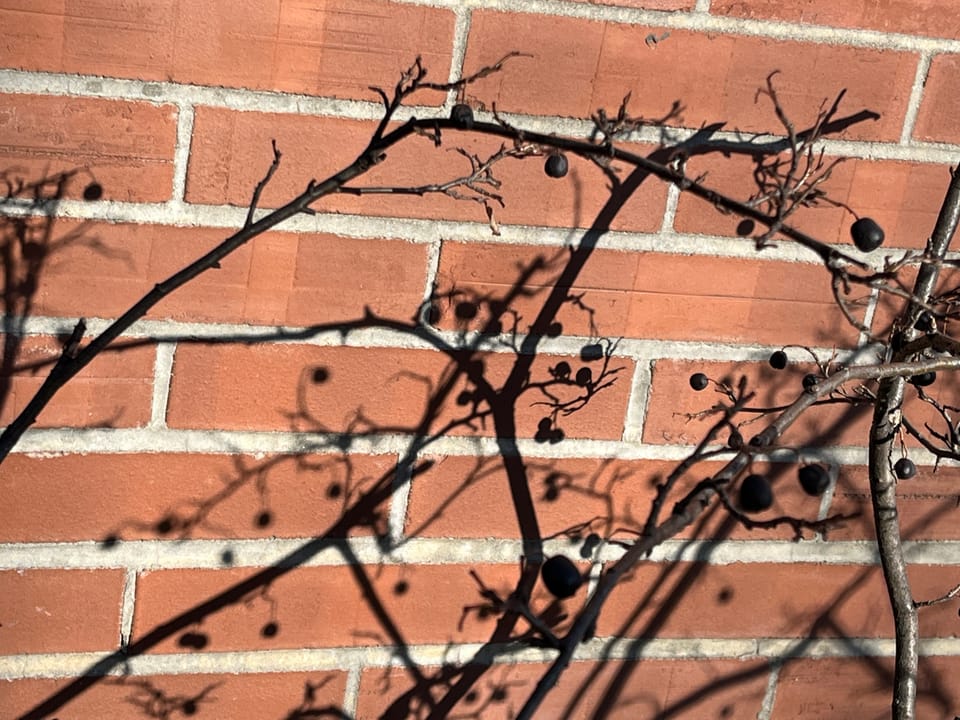Decisions and Revisions Which a Minute Will Reverse

The following actions are more important to me than anything to do with my career, and I hope you won't skip past them.
If you're in Canada, this informational google doc is updated almost daily with information, scripts, and direct actions you can take to pressure our government into ceasing its support for Palestinian genocide and stand in solidarity with people enduring relentless and unspeakable horror.
If you're in the US, Jewish Voice for Peace has many tools for coordinating action, and links to repositories of information for comprehending this situation.
This Linktree has a rotating list of six fundraisers started by Palestinians in Gaza and their family members abroad. When the goals are met, the fundraisers get rotated off and replaced with new ones. This is triage and absolutely not a substitute for immediate ceasefire and the lifting of obstructions to aid which the US and Israel could make happen instantly. But every life saved is a universe, and I think this is a helpful coordination.
Similarly, Operation Olive Branch is coordinating efforts that cast a wider net, tabulating different categories of need and requests for help.
I hope that wherever you are in the world you're finding ways to work for the liberation of all people.
Dear Friends,
I finished a book last month and I almost didn't notice.
It began life as a short story – what we in the biz call a novelette, a term I'm not sure exists outside the literary ecosystems of science fiction and fantasy, but describes a story between 7500 and 17500 words in length. It was commissioned to be an audio-only affair, so I wanted to write something musical in nature; I've long had a bone (ha ha) to pick with a murder ballad (ho ho), so I took that as my subject, started writing something about harps and sisters with riffs on riddle songs and grammar-as-magic, heavily influenced by Hope Mirrlees' Lud-in-the-Mist. I looked forward to it being an ephemeral audio production, one on which I might play harp myself, and that I might, at some later point, expand into something of a different texture for print.
To my great surprise the audio project collapsed somewhere between copyedits and production, the rights reverted to me, and my very brilliant agent suggested we sell it elsewhere as-is; it landed with Ali Fisher at Tor, and became the cornerstone of a 4-book deal provided I could expand it into a novella. (A novella, by the metrics used in SFF awards, is between 17500 and 40000 words long.)
Here began a period of weird nomenclature. I started calling it "my sisters story," "my harp story," "my ballad story" as I built it up—but after a first pass I started calling it "my revision," in a way that started to sound in my own head like Monk Ellison from American Fiction saying "my pafology." I struggled with my revision, hard, probably harder than any other thing I've worked on yet; I wasn't trying to make a short story into the best version of itself, I was trying to transform it into something categorically different, for a different medium than the one originally intended. Revision felt less like something I was doing to a manuscript and more like what the manuscript was: something endlessly changing but not quite becoming, something that was caught between shapes and needed me to lead it into a new one at the cost of the old. I kept saying to my wonderful editor, "I feel like I'm trying to turn a scarf into a sweater but all I know how to do is knit more scarf."
But after I turned it in—after a day of dazed wandering long prophesied with knowing nods and raised glasses by my more seasoned novel-writing friends—I heard myself say, out loud, "I turned in my revision," and the whole of it hit me. I hadn't "turned in a revision," I'd finished a book.
It's a short book. It clocks in at 20000 words. But it's longer than my half of This Is How You Lose the Time War, and it's the longest thing I've written to date. It will take up physical space on a bookshelf. You'll be able to hold it in your hands.
It's called The River Has Roots, and I'm so excited to tell you more about it soon.
In strength and solidarity,
Amal

Postscripts of News
- I reviewed Kelly Link's superb first novel The Book of Love for the New York Times! I love getting to write a full-length review of a single book, and this was such a pleasure; it's such a different creature from the column.
- Speaking of which, I had a new column appear in February, covering Seth Dickinson's Exordia, Heather Fawcett's Emily Wilde's Map of the Otherlands, and Ray Nayler's The Tusks of Extinction.
- I've been reading a lot of Vajra Chandrasekera's older essays and recently and loved this one particularly: "The Extractivism of Setting and the Traitor's Text." In addition to being superb it gave me the phrase "it is the desert of the clowns," which has cheered me immensely whenever I have occasion to use it (regrettably often).
- Hugo nominations close on Saturday, March 9, at 11AM EST. If you're a member of Glasgow Worldcon or attended Chengdu, you're eligible to nominate works. The only thing of mine from last year that I'd love folks to consider is my contribution to The Book of Witches, "John Hollowback and the Witch." It's a cuspy sort of story; I thought for about half of last year that it was a novelette, because my first draft was 7524 words long and that's what was on the contract, but it turns out the finished published work is exactly 100 words shorter at 7424, so eligible in the short story category. It's very funny to me that I wrote two novelettes last year and neither one of them survived the revision process unchanged; thematically appropriate to both, really.
- In my last letter, I wrote about New Year's Birds, and Bohemian Waxwings, and said that we were waiting "to learn whether or not we get to stay in this house past August; whether Stu and I will have to turn bohemian ourselves and take to our wings in search of a place to sustain us." To our deep sadness, we've learned that we will have to leave this very good and beautiful house, and the shape of where we'll be next is unclear. We know more about where we're travelling in August than where we'll be living in July, and that's a very strange thing to take stock of after several years of pandemic immurement.
- I want to surface this action item from within the Canada-specific sheet I opened with because the next 10 days will be critical for it: "The NDP have submitted a motion which will be debated in the house on March 18th. It calls on Canada to fully support an immediate ceasefire, impose an arms embargo and refund UNRWA, among other things." You can use CJPME's tool here to email your MPs and demand they support the motion. I used to work in a Ministerial Correspondence Unit over a decade ago, and can affirm that letters have a material impact on policy, not because they sway a minister's heart or mind, but because the sheer volume of letters received in a campaign gum up the bureaucracy in such a way that a minister has to pay attention. Collective action is effective, even when it doesn't feel that way; this is an easy way to participate.

Member discussion